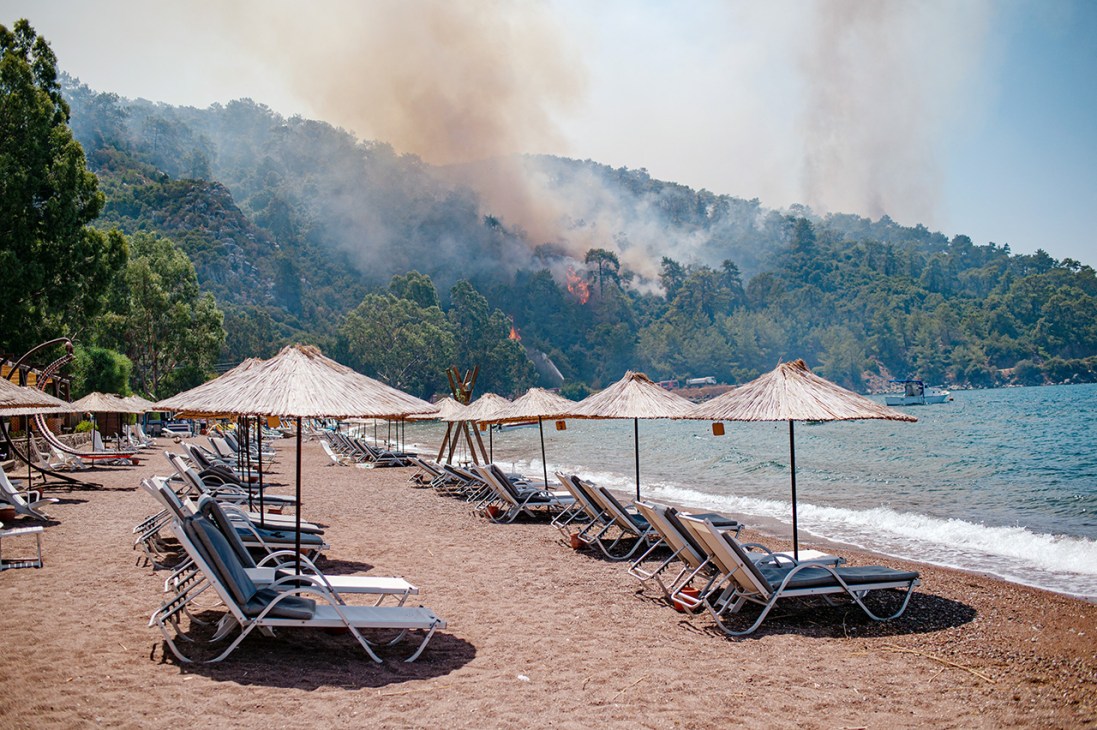As extreme heat threatens Mediterranean holiday resorts, the answer could be over their shoulders
As southern Europe swelters, the traditional holiday calendar is under threat. Resorts are rethinking the high season, and the solution might be hiding in plain sight.
In the tourism trade it’s known as “shoulder season” – the late spring and early autumn weeks that buttress the busiest months of high summer. Traditionally, this was when holidaymakers seeking sun at a snip or looking to avoid the school break would take their getaway, albeit with the trade-off of chillier evenings. But rising summer temperatures in the traditional vacation playgrounds of the Mediterranean are now adding an extra incentive. This year’s May-June bookings were up 13 per cent on 2024 and September-October bookings are up by 20 per cent.
This month the Med feels just as crowded as any of the high summers of recent memory but there is a growing recognition that business models need to change. Southern Europe’s “sun, sea and sand” promise is less of a sell when temperatures are reaching deadly heights and the mercury in northern Europe regularly soars into the thirties. Last year several tourists, including television doctor Michael Mosley, died of heatstroke in Greece and drawcards such as the Parthenon in Athens have had to be repeatedly closed due to the extreme heat. Research by the International Labour Organisation found that there has been a 42 per cent increase in heat-related workplace deaths since 2000. Trade unions are pushing the European Commission to legislate on maximum-working temperatures – something that, if passed, would likely affect beach clubs and other outdoor attractions. Another problem is forest fires, which are now blighting large parts of the Med each year and led to mass evacuations from resorts in Crete last month.

“Climate change is a profound issue that will shape the future of tourism in Europe,” says Sedat Kirt, the deputy mayor of Marmaris, one of the most popular resorts in Turkey. Places with tourism-dependent economies need to rethink their strategies accordingly. The municipal authorities in Marmaris have started planning for out-of-season attractions, including a New Year festival that will run throughout the month of December and a local twist on Oktoberfest. The Turkish tourism ministry has also begun to open some of the country’s most famous archaeological sites to the public at night.
But other less southerly locales will reap benefits from the rising temperatures. Demand will shift to mountain resorts as tourists search for cooler climes and there is an opportunity for coastal towns in northern Europe to market themselves as summer alternatives, too. More tourists are seeking out eco-holidays that, lo and beyond, Scandinavian countries are excelling at through cycling and hiking getaways that showcase their dramatic landscapes. In the Canary Islands, the industry is getting elemental with off-season trips that promote stargazing and volcano tours. Summer breaks in stifling, overcrowded cities are on their way out, while inland water tourism centred around canals, rivers and lakes – something the UK could well excel in – is booming.
From Greek islands to Italian and Turkish coastal resorts, the industry is recalibrating. Year-round visitors would be a boon for locals who are often reliant on seasonal business. Conversations are turning to how communities can take advantage of clement winters, when the weather is perfect for exploring ancient cities and forest paths. In the south of Europe, mountain biking, camping and trekking are all best enjoyed between November and March, so municipalities need to work harder to run more than beachside cocktail-led campaigns. In late autumn it’s harvest season, a time when Mediterranean resorts should be capitalising on the region’s gastronomic prowess. And while the Med’s waters are frigid in winter, swimming is bearable for those brave, hardy northern European holidaymakers who could do worse than Christmas in Catania.
Hannah Lucinda Smith is Monocle’s Istanbul correspondent. For more opinion, analysis and insight, subscribe to Monocle today.
Read next:
Seville, the ‘frying pan of Europe’, holds the secrets to managing the blistering summer heat
How to cool cities naturally, without resorting to air conditioning



